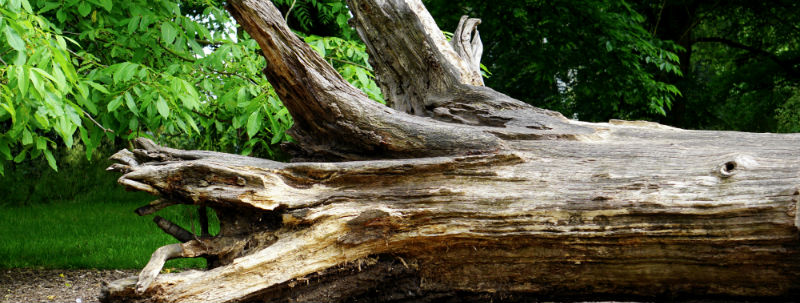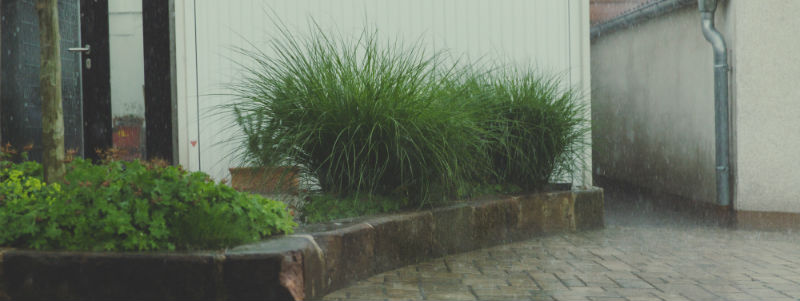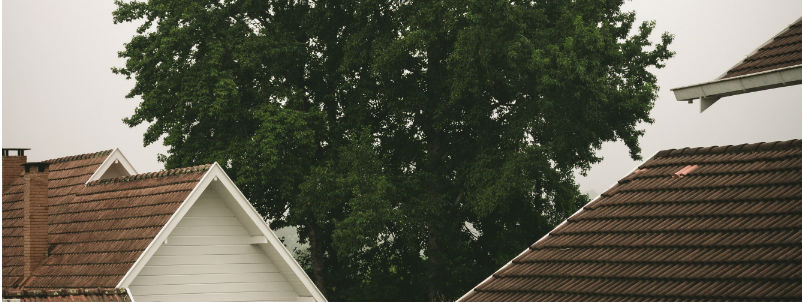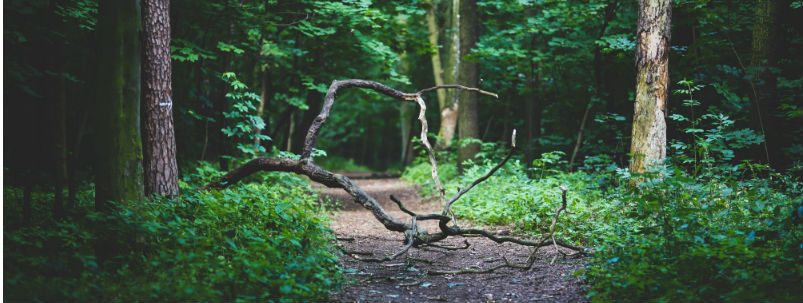I Was Injured By a Falling Tree – Who’s Responsible?

This summer began with seemingly constant rain. While it did delay the heat and humidity for at least a few weeks, the deluge did its share of damage on unplanted fields and flood plains. And for homeowners with steep lawns, runoff presented another problem: leaning trees.
Tree roots have a hard time clinging to wet soil, especially if the tree is diseased or dying. And in storm season, a leaning tree quickly becomes dangerous.
Homeowners insurance helps if a falling tree damages your property. But what if you are injured by a tree owned by a neighbor?
If the tree fell because your neighbor was negligent, then you could file a personal injury claim through their insurance. But if the tree was felled by a storm or other natural event, you might not be able to hold anyone liable.
Acts of God

As convenient as it would be to blame an annoying neighbor, sometimes the only thing responsible for a felled tree is the weather itself.
Most homeowners insurance policies cover damage caused by unforeseeable risks or “perils” like wind or lightning strikes. Not all policies cover the same perils, so be sure to check with your insurance agent about your specific policy.
If your neighbor’s tree is knocked down in a windstorm, your homeowner’s insurance could pay for property damage if you have coverage for windstorms.
However, most homeowners policies only cover property damage caused by acts of God, not injuries. If your neighbor has med-pay coverage under their homeowners policy, that might cover your medical bills. Otherwise, you’ll have to dip into your own health insurance.
Their Tree, Their Responsibility

Property owners must keep their premises in a reasonably safe condition. This includes maintaining any trees on their property — removing dead branches, making sure tree roots don’t do damage to adjoining properties, and generally ensuring the tree is safe.
You have the right to notify your neighbor if the tree looks like it’s about to fall, or if you’ve noticed dead branches hanging over your property. In some cases, your neighbor’s insurance company may even refuse coverage unless they remove an unsafe tree.
If your neighbor knew that soil erosion was causing the tree to lean dangerously, or that branches were dead and needed pruning, and didn’t do anything about it, their negligence makes them responsible.
Who’s Responsible: Nature or Neighbor?

If there is even the slightest chance that the tree fell because of your neighbor’s negligence, things can get tricky.
Say that you were hurt by a dead branch that was knocked down during a storm. Who’s to blame: the storm, or your neighbor?
Did your neighbor know that the branch was dead, but didn’t bother to remove it? If so, they were negligent and are legally liable for your injuries.
If they were negligent, you could file a claim to recover any damages (medical bills, lost wages, pain and suffering) for your injuries.* But you must prove that they had prior knowledge of the tree’s condition. For instance:
- Had you told them before that the tree was leaning towards your property?
- Had a previous inspection revealed the tree was diseased and needed pruning?
- Did the municipal utility companies previously ask for the tree’s removal?
*The only exception to this is if you were injured on a wooded plot of your neighbor’s land. It’s unreasonable to expect them to monitor all the trees in a heavily wooded area. If you were injured on your neighbor’s property, a premises liability attorney can help determine if you have a case.
Gathering this type of evidence can be difficult when you’ve been injured. A personal injury lawyer can not only help determine if your neighbor was negligent, but can also act as the go-between for you and the insurance companies. That way, all you need to focus on is your recovery.
If you’ve been injured by a fallen tree or branch, Hensley Legal Group may be able to help. Give us a call or contact us online for a free conversation about your personal injury claim.
Available 24/7
Free Case Review
You won’t pay any fees until we win your case.
It’s easy - you can: